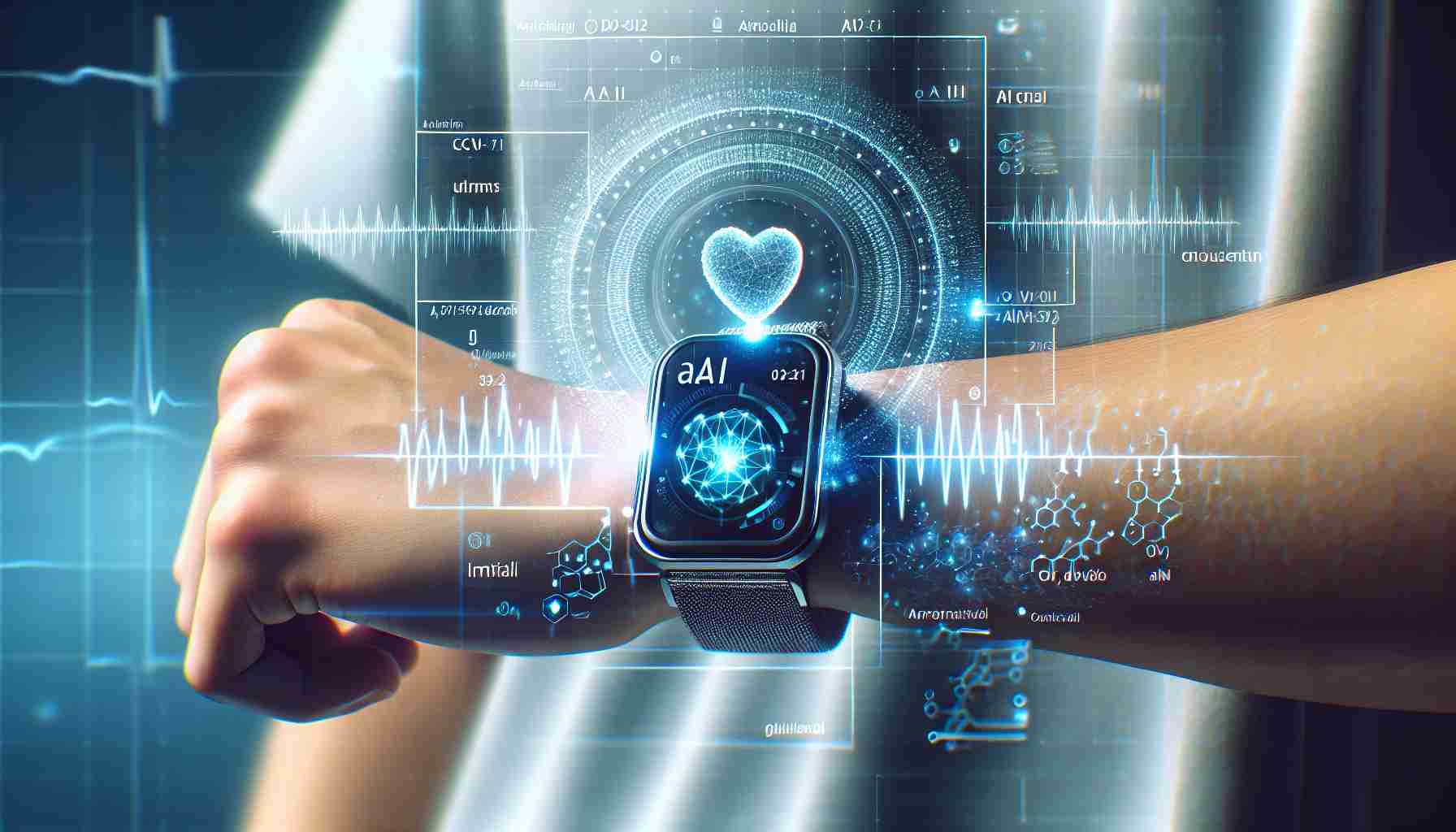A New Era of Digital Health Advancements on the Horizon
Samsung is on the brink of revolutionizing personal health management with the upcoming release of their latest wearable technology this summer. Slated as a significant step forward, these devices promise to intertwine artificial intelligence (AI) more intimately in monitoring and improving user health.
In the heart of Seoul, Samsung’s medical and AI experts have projected a future where wearables seamlessly integrate into the healthcare ecosystem. At a gathering held at the Samsung Medical Center, a consensus emerged among Samsung Health Advisory Board members about the pivotal role that technology, particularly when linked with Generative AI, could play in bolstering the health sector. They anticipate a future where AI will extract meaningful health insights from daily life, enabling a richer understanding of individual health patterns.
Transformative Health Monitoring Through Smart Devices
According to cardiologists and diabetes experts, these smart devices, much like vigilant guardians, could provide constant health surveillance. They stand the potential to detect diseases like hypertension and atrial fibrillation early on, allowing for timely, low-intensity interventions. The advanced detection methods, powered by AI, aim to translate complex data into actionable health strategies.
The Path Forward with Samsung’s Technological Insights
The discussions also illuminated how Samsung could impel positive behavioral changes in individuals. The proposed technology, through nuanced data interpretation, could enlighten users on the myriad of benefits stemming from gradual lifestyle adjustments. Going beyond individual benefits, Samsung envisions fostering communal support systems where wearables empower users to establish supportive networks with friends and family, thus reinforcing health-conscious behavioral modifications.
Evidently, Samsung might unveil wearables integrating AI-driven health features into its Galaxy Watch series and introduce innovative solutions for noninvasive blood sugar tracking—anticipating to eclipse competitor Apple in this tech race. While specifics remain under wraps, these interviews signify that Samsung’s commitment to digital health may soon materialize into powerful tools designed to enhance our well-being.
Integration of AI and Wearables in Personal Healthcare: Key Questions
What advantages do AI-powered wearables offer in personal health management?
– Advantages: AI-powered wearables can provide real-time health monitoring, detect potential health issues earlier, offer personalized insights and recommendations based on user data, and encourage positive behavioral changes.
How do AI and wearables improve health outcomes?
– AI and wearables improve health outcomes by allowing for early detection of diseases, enabling preventive care, facilitating remote patient monitoring, and providing data for better informed medical decisions.
What challenges do AI-powered wearables face in the healthcare sector?
– Key Challenges: Challenges include ensuring privacy and security of sensitive health data, achieving accuracy in health monitoring, integrating with existing healthcare systems, and addressing regulatory and ethical concerns.
Are there controversies or ethical concerns with the use of AI in wearables for healthcare?
– Controversies and ethical concerns revolve around data privacy, ownership of health information, potential biases in AI algorithms, and the implications of continuous health surveillance.
Advantages and Disadvantages of AI and Wearables in Personal Healthcare
Advantages:
– Continuous Monitoring: Wearables offer the ability to continuously track various health parameters, which aids in early disease detection and intervention.
– Personalization: AI can analyze the vast amounts of data collected by the wearables to provide personalized advice and health insights.
– Accessibility: These devices make health monitoring accessible outside of traditional healthcare settings, increasing convenience for users.
– Behavioral Insights: AI can help identify and reinforce positive behavior changes, contributing to better health outcomes.
Disadvantages:
– Data Privacy: Wearables collect personal health data, raising concerns over privacy and the security of this information.
– Dependability: The reliability of the AI’s interpretations and the accuracy of sensor data can be a concern, as inaccurate information may lead to false reassurances or unnecessary anxiety.
– Limited Scope: There may be limitations in what health conditions can be monitored or detected by current wearables.
– Accessibility and Disparities: Economic and digital divides could result in unequal access to these technologies, possibly exacerbating health disparities.
For those interested in delving further into the topic, consider visiting the main websites of key industry players and research institutions:
– Samsung
– Apple
– National Institutes of Health (NIH)
– World Health Organization (WHO)
These links are directly to their main pages, which offer insights into the latest advancements and research in AI, wearables, and healthcare technology.
The source of the article is from the blog karacasanime.com.ve
